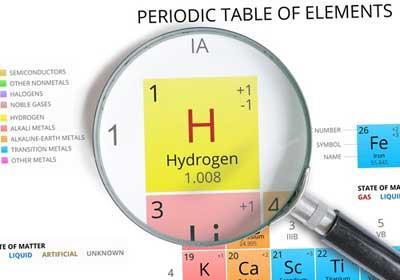
There is growing support for the view that green hydrogen made with renewable electricity could play a key role in decarbonising heavy road transport, but it should not be seen as a “silver bullet” that will address all the industry’s carbon concerns.
In a webinar looking at the potential for the UK to move to a hydrogen-based economy on the road to net-zero carbon emissions by 2050, Energy UK’s head of European affairs Marta Krajewska said the energy producers’ association was supporting the ‘Hydrogen strategy now’ campaign to persuade government to invest in a hydrogen economy as part of the Covid-19 recovery.
Kim Saehoon, head of fuel cell division at Hyundai, which is trialling hydrogen trucks in Switzerland and plans to deliver 1,600 by 2025, described hydrogen as a “third industrial revolution” after coal and oil. “If we want to use renewable energy, hydrogen is the key element,” he said. “We are developing fuel cells as part of the way we use renewable energy from hydro, solar and wind. We also have to have electrolysers if we want to produce hydrogen.
“On the mobility side many people say we are competing with battery, but actually we co-exist because in countries where renewables are plentiful they can directly use electricity for battery electric cars. But some countries will have to import renewables in the form of hydrogen and then fuel cells can be more effective than electric.
“Today for truck and bus there is no other option for the power train as batteries will be too heavy. We are preparing the technology for that.”
Chris Jugel, director of energy systems at the German Energy Agency, said that while hydrogen would have a “special role in future energy systems” it was not “the silver bullet to solve all our problems”.
“That special role will be include reducing local emissions from the transport sector,” said. “It will also have an indirect role as green hydrogen is the basis for renewable production of gas to liquid power fuel feed stocks. That will enable us to use existing infrastructure and devices which leads to much lower overall cost of energy transition. These power fuels can also be stored, traded and transported over long times and distances.”
George Freeman MP, until recently UK minister for the future of transport, said there was “a huge opportunity” for the UK and Europe to take the lead in green technology but reiterated the message that hydrogen was only part of the solution.
“There has been a problem of people lobbying for hydrogen as a silver bullet to solve all our problems but that doesn’t cut it with ministers,” he said. “That is changing fast and there has been much better lobbying. There is also a problem with initial upfront cost of procurement. Hydrogen buses cost £400,000 compared with an electric bus at £200,000, but if we did a whole supply chain costing then it’s very different. If we committed to buying 3,000 then the price soon falls.
“Finally there is technical issue with distribution. It is not clear what the national distribution system would be, which is why I suggested we do five hydrogen hubs in coastal locations close to offshore wind – Aberdeen, Teesside, southern North Sea, Bristol and Northern Ireland – with full hydrogen buses, cars and lorries to create some clusters while we work out how to link them up in a national system."














